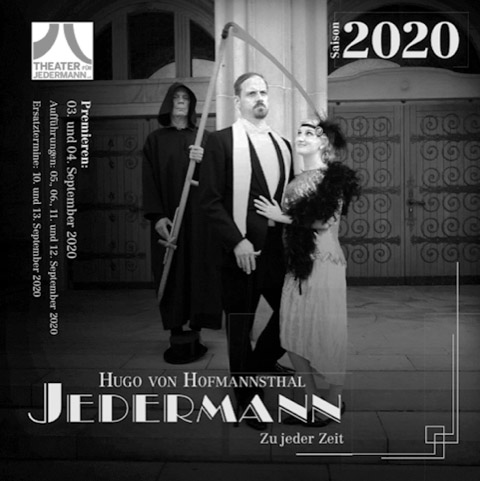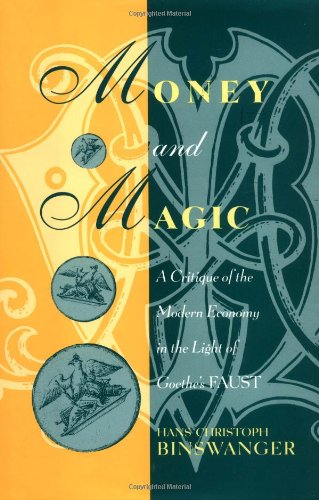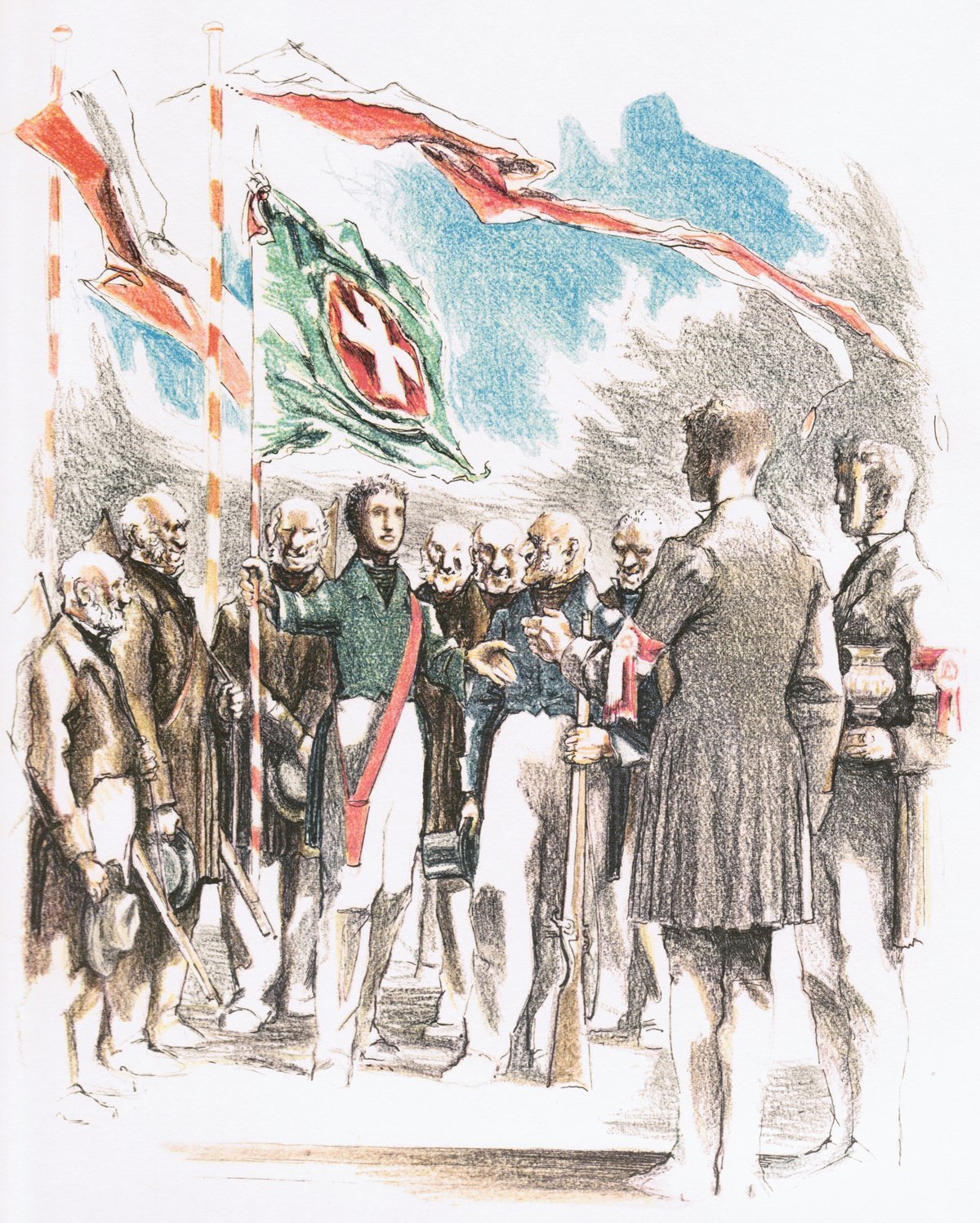Money and Mentality
by Peter Küpfer
A tiny little organism has thrown things out of kilter worldwide. Our daily routines were disrupted - what was normal in our countries just two months ago has today become unthinkable. The crisis gave cause for many people to reflect in a positive sense. The reduced scale of our daily lives has given occurrence to acts of kindness: spontaneous contacts and neighbourhood voluntarism. This is hopeful. Especially in times when the major media commemorate the days when the Second World War came to an end.
Today most of the world population suffer from hunger while another part is mainly confronted with the problem of reducing overweight. Today’s situation hardly corresponds to the situation at the end of the last global war 75 years ago, which led to the Declaration of Human Rights: people should forego wars in order to settle their conflicts and solve them peacefully. They should meet each other in a spirit of brotherhood.
That people can and should meet in this post-war spirit has always been an issue or hope of literature. For it reflects not only the world as it is. It also reflects the world as it could be and as we humans dream of. The writers of all times have had a sense for what impairs developed humanity: It is envy, ill-will and striving for power. Even Molière's character comedies describe these impressively. These destructive forces endanger our world from within.
Wealth – not a reliable value
Viennese writer Hugo von Hofmannsthal created a play based on his revised edition of the medieval story of the rich man's death, which deals exactly with the topics of money domination and meaning of life. For many years, his “Jedermann” (“Everyman”) has been performed annually on the Salzburg Cathedral Square as one of the oldest open-air plays, attracting thousands of spectators every year - with the exception of this summer, for well-known reasons. It was written shortly before the outbreak of the First World War, at a time when the European powers were fighting for supremacy through the “means” of war, resulting in millions of casualties. Today, historians insist that one of the main reasons was the race for strategic and economic advantage. Even then, the great powers' struggle for oil reserves in the Middle East played an important role. Hofmannsthal, by using the example of “the rich man” in his disturbing play, shows how unreliable an existence is which is based on having more and wanting more than others. Heaven decided that his career should end “in the best years”. Death is sent to him and takes him out in the middle of a feast with his friends and his “paramour”, today one would probably say “cohabitant”. Everyman asks for a 24-hour respite and starts looking for someone to accompany him on this difficult journey. But everybody, his best friend, his relatives, even his paramour, made excuses and did not want to accompany him. In the end only one friend remains, a particularly unreliable one: Mammon. The servants have to bring Everyman Mommon’s heavy box from the cellar. The cover pops open, and out of it rises, huge, a veritable ghost: the embodied money. “You belong to me,” desperate Everyman tells him, “you must accompany me and make my journey easier.” Mammon refuses and mocks the desperate man with cold scorn: You are a fool and a coxcomb, he answers him. If you thought I, your money, was your servant, you have miscalculated wickedly. It was the other way round. You were my servant and I pulled the strings (of money multiplication):
Mammon*
“Oh! Fool of fools? Why look you, Everyman:
I stay behind on earth, and where are you?
The strength I placed in you, the giant power,
What have you made it? – a spectacle,
A glittering show, a fashioned pompousness,
A lustful, cursed fury! He was but
A bladder blown by me, and that he soared
And still can soar, is due alone to me.
This is what gave him courage to exist.
(Lifts a handful of money from chest, and lets it fall back again.)
Back whence it came it falls: there also ends
Your happiness! Soon too your senses five
Shall wither, till you know me not again.
I was but lent you for this early day,
And go not on your journey. I? Depart?
Nay, I remain! You shall go forth, alone,
In want and fell despair.
[…].”
In its linguistic simplicity and impressiveness, deliberately sought by Hofmannsthal, the text points to a very important aspect of the monetary economy (Hofmannsthal, as a son of a banker, is very familiar with it): just like the soil, money, if used sensibly, is a borrowed value. Only in this way can its power develop in a blessed way, in the service of all, as a loan and privilege which should be harnessed. For the benefit of all. There is only one true companion whom Everyone finds in his desperation. It is the figure of his “works”, allegorically represented as a weak woman: All the good and useful things he did, despite his life as a rich man. It is little, but together with his rediscovered faith it is enough so that his soul is saved in the end. Just like that of another protagonist, Goethe's Faust, but this time entirely in a worldly garment.
Faust – a person who lives his live by taking action
After Faust left his parlour scholarly existence and went out into the world to realize "what holds the world together at its core" - he dedicated himself to the devil, according to the old Faust saga - and he also gained money and reputation. After many adventures, at first in his immediate surroundings, in which he becomes guilty partly through the actions of his diabolical companion (Mephistopheles), he arrives at the medieval court of the German Emperor. Here, in the second part of the Faust poem, gold, money, ruthless (exercise of) power and the resulting guilt influence the events on a much larger scale than in the first part, the Gretchen tragedy. Faust's adversary Mephisto is a modern, elegant and cosmopolitan new version of the devil. At the emperor's court, where Mephisto leads the enterprising Faust to show him "the big world", misery prevails: the imperial coffers are empty, nothing more is possible. The paralysis of life is just as threatening as in the global economic crisis that afflicts us today. In this situation Mephisto "invents" paper money to revive the paralysed economy and replenish the state coffers. However, the coverage of this money is based on a weak foundation (is today’s foundation stronger?): Mephisto whispers into the emperor's ear, that according to the old law, all the wealth that is found underground belongs to the emperor, all the treasure chests that a caring private owner buried in the face of hardship and war and which have then fallen into oblivion belong to him. It makes sense to the emperor, the paper money is printed in no time at all, in the Faust drama by magic, in our modern world the central banks act similarly. How the emperor is to come into real possession of these supposed riches (and how far they really exist!) remains Mephisto's secret. Faust's artificial injection of money gives him a powerful position at court. With his entrepreneurial spirit, Faust achieves great things. As in the first part of the tragedy, however, he is guilty and causes, unintentionally but de facto, the death of two uninvolved people. In spite of this, Faust finally finds mercy before the eternal chair of justice, and Mephisto loses his wager. Faust's lifelong effort to be effective and active for the good of the whole weighs more heavily than his concomitant guilt: "Whoever strives, we can redeem", sing the heavenly figures, who stand protectively before Faust and carry him off into the Elysium.
Faust is, if you look at the whole thing, the epitome of a person who lives his live by taking action. On his life's journey, he realized that it is neither magic, nor metaphysics, neither power nor the personal pursuit of profit that gives the life of the individual its true meaning, but rather by contribution to the whole. For Goethe, the great model was not a construct, but nature. It can change into real, human culture if the striving is also real and natural, if it is human.
Individuals measure themselves by the same standard...
A few generations later, which were marked by industrialisation and the expansion of the economy, the Swiss poet Gottfried Keller, a great admirer of Goethe, thought similarly. He too saw the source of a fulfilled life in contributing to the whole, the bonum commune. He was imbued with the idea that political participation is part of a fulfilled contribution. He found an ideal form in the still young Swiss democracy. As a writer, but also as the long-standing First State Writer of the Canton of Zurich, he repeatedly admonished the spirit that was to inspire this building and put his finger on what was threatening it. It is self-interest, maverickism, envy and greed, all traits that drive the people in Keller's works. Keller shaped what is at the core of democracy, and what threatens it, in many stories and in his old-age novel "Martin Salander", often, as be fitting his temperament, with a good dose of humour that does not detract from the seriousness of the matter.
All this is shown in the novella "The Banner of the Upright Seven", which is still highly readable today. It tells the story, told with humorous detachment but human respect, of the participation of a tried and tested group of deserving radical democrats from Zurich at the 1849 Schützenfest (national marksmen´s festival) in Aarau. Marksmen´s festivals back then were more than just large-scale festivities. The Swiss shooting tradition rests on the fact that Switzerland's centuries-long defensive tradition was essentially based on the fact that every Swiss citizen also saw himself as a defender of his country in times of need. When necessity demanded it, he stood up for his civil liberty with his personal weapon. This is what tradition wanted, and this is what the new Federal Constitution of 1848 wanted in principle, which stipulated that every Swiss citizen was also liable for military service based on his civil rights. This was also the case in 1939, when the Swiss Federal Council decided on general mobilisation.
With reference to one of the main protagonists, master tailor Hediger, this defendability of the Swiss citizen is clearly expressed in a much-quoted passage. In the description of the study chamber of the modest craftsman, reference is also made to the "bare ordinance rifle" along with live ammunition, which stands next to the books:
"Until now, a friendly star had protected him from bloodshed due to lack of opportunity; yet he had seized the gun more than once and had hurried to the square, since it was still the time of the coups, and the gun had to remain unmoved between bed and cupboard; 'because', he used to say, 'no government and no battalions can protect justice and freedom where the citizen is unable to come to the door and see what is there himself!"
The seven-member round of old Republicans, the „Seven Upright Ones“, wanted to participate as an autonomous delegation at the Schützenfest in Aarau of 1849. The year is significant. 1849, which is one year after the revolutionary year of 1848, when Germany and other European cities experienced turbulent times. It is also the year of the foundation of the Swiss confederate states with its expanded democratic constitution. This was in Switzerland only one year after the Country once again waged a civil war, which hopefully was the last one in its history, the so-called Sonderbund war. Once again, old irreconcilable opposites pitted against each other, opposites that for centuries had helped to shape the history of the Confederation and its internal conflicts: The countryside villages with their predominantly conservative and catholic thinking people on the one hand, and the mighty cities, the majority of which were protestants, who wanted a secular republican state, on the other hand. Thanks to the foresight and maturity of the General of the Federal troops, General Dufour, the inferior Sonderbund (the Alliance of Catholic Cantons) was treated with the greatest possible care - good conditions for the foundation of the federal state one year later. This state did not see itself as a victorious state, but as the guardian of the Swiss multilingual and multicultural nation of will, as described by the constitutionalists.
A love story is interwoven in the main plot of the novella. Karl, Hediger´s son, had fallen in love with Hermine Frymann (and fortunately she also with him), the beautiful and self-confident daughter of the successful master carpenter, owner of a large joinery, the chairman of the „Seven Upright Ones“. In Hediger´s opinion the social differences between the two families are too big. He is afraid, that with a marriage between materially so differently positioned families, his freedom in dealing with his old friend would suffer. It is never good, he argues with his wife, when a man makes a fortune simply by marrying and not by his own aptitude. The calm, but fundamental reasoning between the two spouses gets lost into a gloomy, but based on the essential, vision of the future of the Swiss Confederation, if the principle of work ethic is exchanged for that of profiteering. Back then, Hediger's vision may have seemed an exaggeration to the readers. Seen through today's eyes Hediger's prophetic view and thus Keller's sense of the vulnerabilities of democracy are to be admired. His wife disagrees vigorously with her husband's point of view:
"Larifari!" his wife interrupted him picking up the tablecloth and shaking it out of the window; " has Frymann, who holds the treasure of which we argue [Author's note: meant is his beautiful daughter] become unequal to the rest of you? Aren't you not of one mind and always putting your heads together?"
"That's something different!" cried the man, "something quite different! He didn't obtain his property by fraud. or by winning the lottery, but by putting together Thaler for Thaler acquired through his labour for forty years. Fortunately, here there are no monstrously rich people, prosperity is quite well distributed; but see which mischief millionaires, who also possess the political greed for power, will bring about!"
And then the humble master tailor utters truly prophetic words:
"There will come a time when in our land, and also elsewhere, great masses of money will amass, without having been worked for and saved in a honest way; then we must bare our teeth to the devil; then it will become apparent if the thread and the colour hold up on our flag! In short! I don't see why one of my sons should his hand out for foreign good, without having worked a single stroke."
The novel ends in a conciliatory sound. Hediger's son Karl stands in for the “Seven Uprights Ones”, none of whom no one dare to do a well-worded introductory speech in front of the solemn assembly. He accompanies them to the Schützenfest and supports them in a buoyant, trusting and supporting speech. He also wins lots of honours for them presenting himself as a master shooter. For this he receives highest recognition, and he gets his Hermine, and the two families join hands for mutual benefit.
…as do the states.
Keller's late work novel "Martin Salander" makes Hediger's vision the main theme by critically examining the realities of Switzerland, which now have become economically more saturated. His years as the first state clerk of the canton of Zurich have sharpened the matured writer's eye for the weaknesses of Swiss modern society and the state of the political convictions of its citizens. Keller identifies serious shortcomings. In his complete work, they are opposed by a multitude of other, truly democratic virtues.
These are the core values of human ethics, which are recognized as fundamental in all major cultures worldwide. They are not aggressiveness, but compassion, not hatred, but empathy, not arrogance, but modesty, not indifference, but sympathy. Based on this attitude, joy and satisfaction emerge in one's own contribution to the common whole, the bonum commune. The basis for this is a good school, which also provides political education in this spirit and the development of the community from the bottom up.
For this reason, and not because of their unfortunately numerous wars, humankind has survived and developed to this day. This is the basis of natural law and the ethical code that animate the Universal Declaration of Human Rights. This constitutes the soul of the poems of all great world-famous poets, who we are reading with great benefit today. They point out what the individual aims for and what communities, including states, want to achieve by peaceful means. It is the attitude of everyone’s respect for each individual contribution to the whole. If this crisis calls us to reflect what is essential, it has its good points. •
(Translation by Current Concerns)
* The play of Everyman by A. M. Robertson, San Francisco, 1917; page 72 – 73; archive.org/details/playeverymanbas00ordygoog/page/n70/mode/2up


